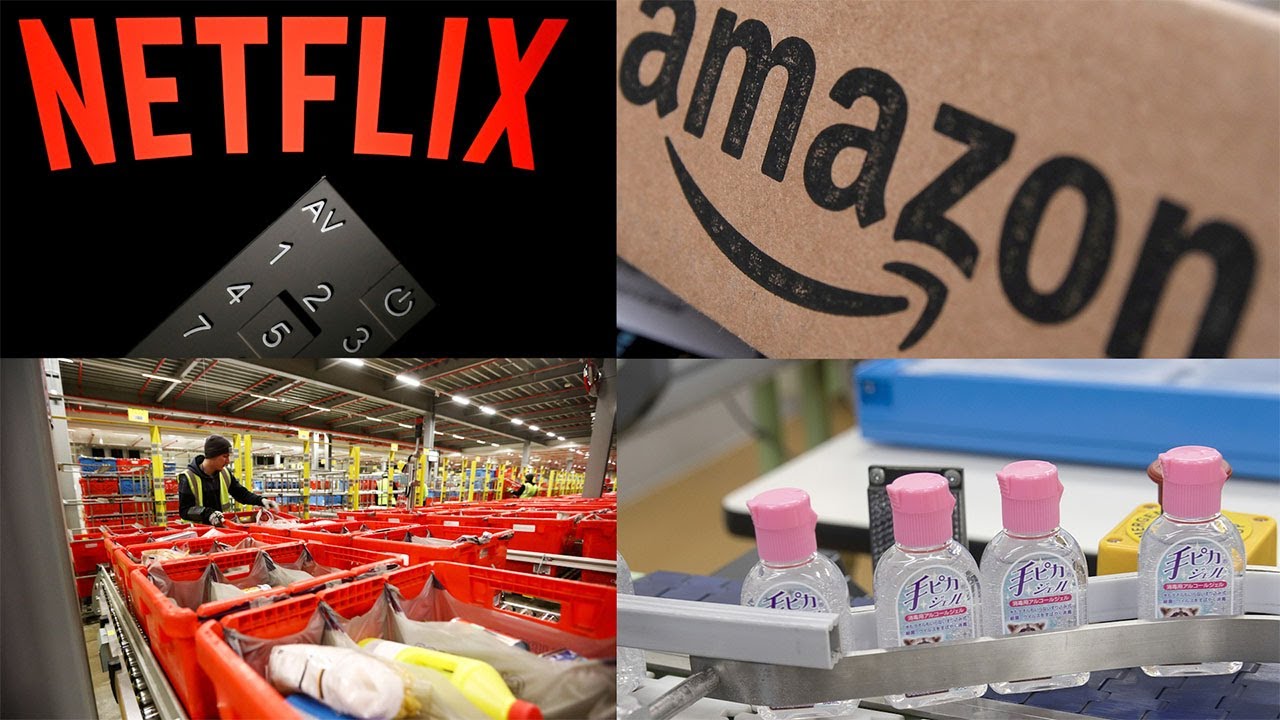Industries that pipped the pandemic

Few businesses like OTT, consumer goods and e-commerce have thrived as people stayed home during pandemic
“I stopped taking food from local tiffin service since April. I switched to ordering from Swiggy regularly as it assured me of following all possible safety and hygiene measures including the body temperature of the delivery person and cleanliness rating of the restaurant I order from. Even after five months, I still prefer ordering food online instead of local food services,” says 23-year-old Anuj Sinha, a Delhi University student. Sinha has been a regular user of delivery apps like Zomato, Swiggy and Dunzo for food since the onset of the pandemic.
Arvind Kumar, a 60-year-old security guard, who had never paid shopkeepers and vegetable sellers online till April, downloaded Paytm and has been a regular user since past five months. “My son made me download the app. He told me that online transactions were safer than exchanging notes and coins in one’s daily life and even an amount as small as a rupee could be transacted via various apps. It actually made a huge difference as online payment doesn’t require any physical contact, which is the key to stay safer during the ongoing pandemic,”
While the millennials and the Gen Z were amongst the early converts to everything online, the onset of the coronavirus pandemic has forced even those who had been holding off the assault of the digital world have been forced to convert to the new religion in the absence of any option. This has not only ensured that the established players in these domains flourish but also attracted many new kids on the block, trying to cash in.
Consumer Goods
Grocery stores across the world have been facing shortages as individuals flock to panic buy and stock up on items such as toilet roll, hand sanitisers, non-perishable foods such as canned goods and frozen food.
Mumbai-based beverage company Parle Agro that sells the popular Frooti (bottled mango juice) and Appy Fizz (bottled apple juice), has seen its online sales jump manifold. ‘‘We have seen a 300 pc increase in sales during lockdown. Now, with an increase in the number of platforms that we partner with online, we are targeting ten-fold growth,’’ says Nadia Chauhan, joint managing director, Parle Agro.
E-Commerce
Doug Anmuth, analyst at JPMorgan Chase & Co, says that the closure of physical stores and fear of public places is resulting in a shift towards online retail, benefitting the e-commerce sector.
Companies such as Zomato, Dunzo and Swiggy in India, just like London-based Deliveroo app, which offer food takeaway and delivery services before the pandemic, expanded their net to include grocery delivery service too. They focused on customers risking minimal social contact with other people like vendors, sellers at the market place, shopkeepers and hence, safer and delivery of essentials. Amazon, in particular, has been enjoying increased consumer demand as it is selling vital items such as food, cleaning supplies and household essentials.
Virtual entertainment: OTT and gaming
The sudden and sustained lockdown has trapped hundreds of millions of Indians – students as well as working adults – at home and with all entertainment facilities such as cinemas, theatres, sports grounds and parks closed to public. This seen demand for online entertainment services such as OTTs including Netflix, Amazon Prime video and music app Spotify spiral to record highs. To capitalise on the opportunity, Netflix has launched an extension for Google Chrome known as Netflix Party, allowing people to host virtual movie nights and watch shows and films remotely with friends. The other major beneficiary of the lockdown has been online gaming with a spurt of downloads and leading games reporting high double digit growth in players and time spent online. In the period between March 1 and July 31, gaming witnessed a 41 per cent increase in time spent while entertainment and OTT have registered a 34 pc increase, said Publicis Groupe India in its report, Reboot to A New Normal. Leading the list of virtual reality games, PUBG, won the race with becoming the most downloaded game ever, before it was recently banned by the Indian government in retaliation against Chinese military aggression in Ladakh.
Social media and video calling
Social networking apps such as Facebook, Instagram and Skype have also risen in popularity as they allowed people to keep in touch across the globe. Average usage of Instagram and WhatsApp in India, has witnessed an 87 pc increase, a business portal has reported.
With offices asking their employees to work from home and most institutions being shut, there has also been an unprecedented rise in formal and informal virtual meetings. Apps like Zoom, WhatsApp video calling service, Facebook messenger rooms, Skype and many more have seen almost 300 pc jump in use of their services since the onset of the lockdown.
Online transactions
With most items being delivered to one’s doorstep, online mode of payment took over cash payments all transactions big and small. The risk of spread of infection though contact while exchanging money physically also fuelled the habit of going cashless.
Paytm, which started as an online transaction portal and became a virtual shopping mall and service provider over the past few years, added more customers to its business during the lockdown. In about five months, Paytm recorded a total payment of over 15 billion in its e-ledger service, Business Khata, launched in January this year. The company claims that using the ledger service, about two million merchants have gone digital and have also learned to set payment due dates for credit transactions and send automated reminders.









